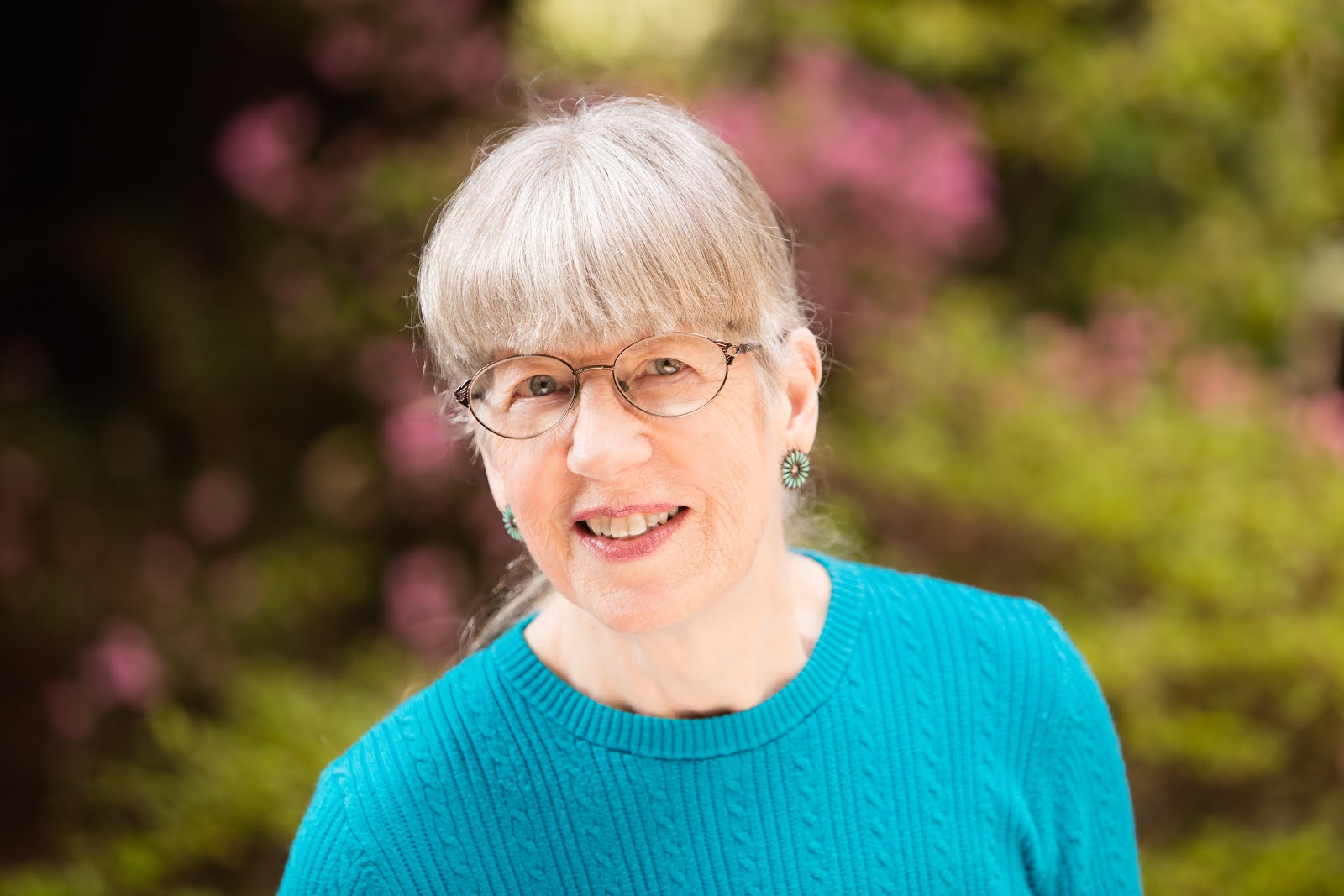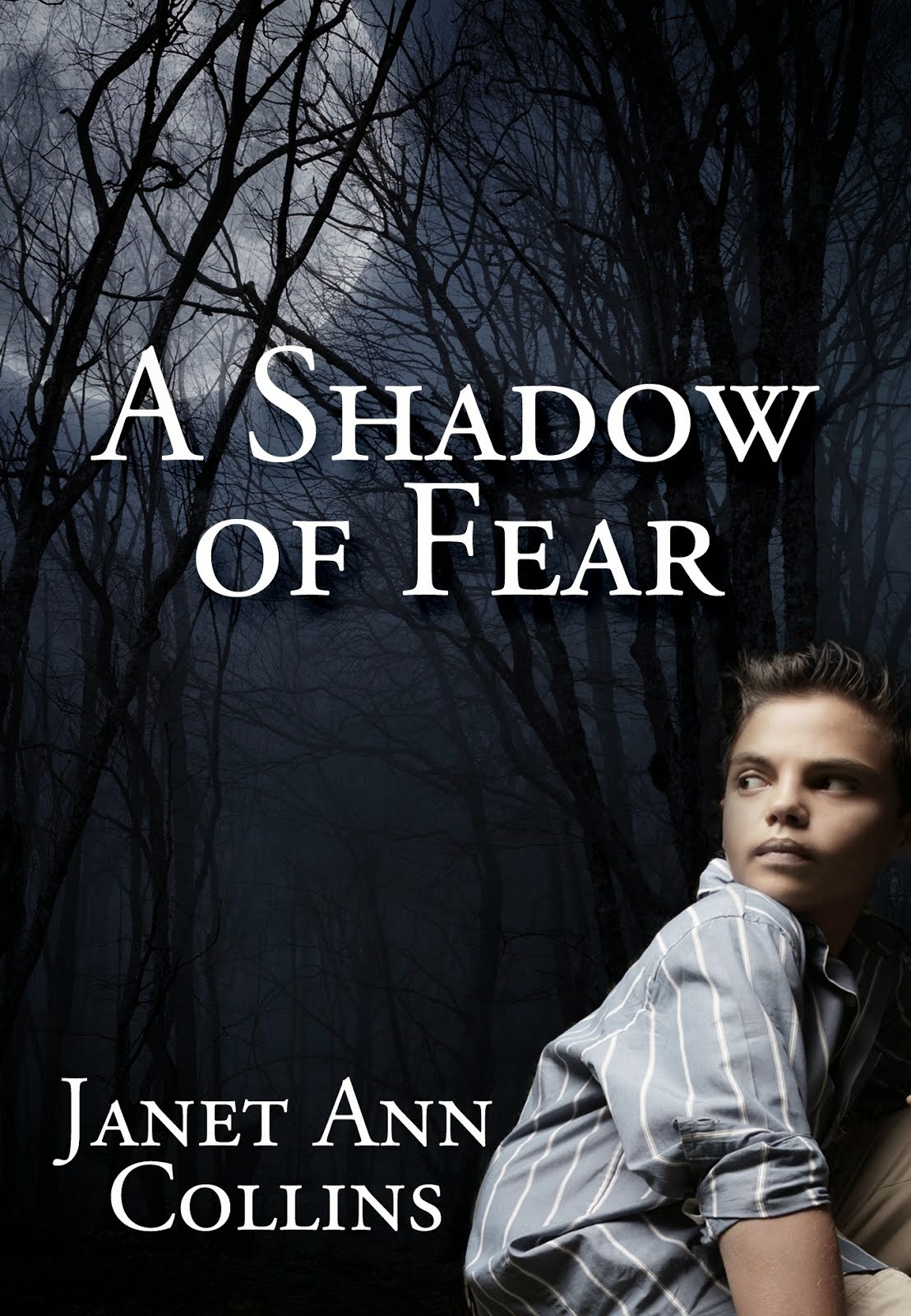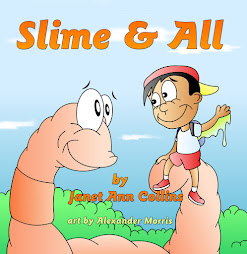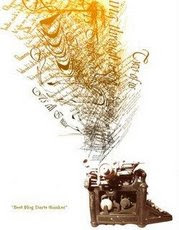No, this isn't a post about a scientific discovery. At least not exactly.
It's a review of a book for kids.
Life on Mars by Jennifer Brown is a middle grade fiction book about Arty, a boy with the usual problems of sibling rivalry with his sisters. He has two good friends, a fascination with astronomy, and an active imagination.
Then a strange, scary, old man moves in next door, and Arty's dad looses his job so they'll have to move away. Things keep getting more and more difficult.
When Arty has to stay with that scary neighbor he finds out the man can help him find out about life on Mars. Then even more things change.
I couldn't help caring about Arty as if he were a real kid.
The story is fun, exciting, and kids who read it will enjoy learning about astronomy without being bored.
Tuesday, January 31, 2017
Saturday, January 28, 2017
Names
I've blogged about names before because they fascinate me.
There are dozens of names related to my first name, Janet. It means 'gracious gift of God,' or 'God gives grace' and some of the various forms from different languages include John, Juan, Sean, Jeanette, Juanita, Shawna, and Janice, to name only a few.
Then there are the last, or surnames.
Lots of those were originally based on people's careers, where they lived, or what they looked like. Names with "son" or "s" at the end told what family someone was from.
Towns and cities were often given names that described their locations. Others were named after people who originally owned or ruled the land where they were built, or who were famous. Others were named after historical events. Sometimes when places were settled by people who had traveled from far away they were named after the residents' previous homes, often with the prefix, "New." And some were named after deities or religious figures like saints.
And people often give names to animals - unless they plan to kill them for food.
Do you know the meaning of your names and the place where you live?
If you have pets, what are their names and why did you choose those?
There are dozens of names related to my first name, Janet. It means 'gracious gift of God,' or 'God gives grace' and some of the various forms from different languages include John, Juan, Sean, Jeanette, Juanita, Shawna, and Janice, to name only a few.
Then there are the last, or surnames.
Lots of those were originally based on people's careers, where they lived, or what they looked like. Names with "son" or "s" at the end told what family someone was from.
Towns and cities were often given names that described their locations. Others were named after people who originally owned or ruled the land where they were built, or who were famous. Others were named after historical events. Sometimes when places were settled by people who had traveled from far away they were named after the residents' previous homes, often with the prefix, "New." And some were named after deities or religious figures like saints.
And people often give names to animals - unless they plan to kill them for food.
Do you know the meaning of your names and the place where you live?
If you have pets, what are their names and why did you choose those?
Wednesday, January 25, 2017
Teaching Kids
When I was a little girl my father died and my mother had to get a job. Fortunately my grandfather had retired and was able to move in with us to care for us kids while our mother was at work. There were no daycare centers or after school care back then.
Throughout my childhood my mother kept telling me I should become a teacher when I grew up so I could be home with my kids whenever they weren't in school. (She had no idea how much work teachers must do when the students aren't there.)
I thought it would be stupid to choose a career in case some husband I might never have might die and I'd have to care for kids I might never have, so I completely ruled out the possibility of becoming a teacher.
I never got a degree in teaching (though I do have Early Childhood Education units) but ended up teaching kids even though it wasn't in the kind of classroom situations I expected.
After working in the dorms at California School for the Deaf for many years as a counselor and Instructional Counselor, I had a preschool family daycare home for about seven years, worked as a substitute teacher for all ages for about another six years, and taught preschool for about four more years.
If I had followed my mother's suggestion and gotten a credential to teach elementary school I probably would have made more money, but I enjoyed working with preschoolers and in Special Education classes.
I wasn't a widow, but just loved the kids.
Throughout my childhood my mother kept telling me I should become a teacher when I grew up so I could be home with my kids whenever they weren't in school. (She had no idea how much work teachers must do when the students aren't there.)
I thought it would be stupid to choose a career in case some husband I might never have might die and I'd have to care for kids I might never have, so I completely ruled out the possibility of becoming a teacher.
I never got a degree in teaching (though I do have Early Childhood Education units) but ended up teaching kids even though it wasn't in the kind of classroom situations I expected.
After working in the dorms at California School for the Deaf for many years as a counselor and Instructional Counselor, I had a preschool family daycare home for about seven years, worked as a substitute teacher for all ages for about another six years, and taught preschool for about four more years.
If I had followed my mother's suggestion and gotten a credential to teach elementary school I probably would have made more money, but I enjoyed working with preschoolers and in Special Education classes.
I wasn't a widow, but just loved the kids.
Saturday, January 21, 2017
Languages
Not too many years ago language was defined as "a spoken or written means of communication." Back then American Sign Language wasn't considered a real language since it was neither spoken nor written, so very few people who weren't Deaf or related to someone who was knew ASL.
Now that lots of people can study that language in school life is easier for Deaf people.
And even animals have languages. I read a fascinating book by Stanley Coren called How To Speeak Dog about dog communication.
We once had a Deaf Dalmation who learned to understand over 300 ASL signs (mostly names of people or animals, places, and foods) and all her signs are in that book. I have a story about her in a Chicken Soup For The Soul Book, I Can't Believe My Dog Did That.
I also once met and had a very short conversation with Koko, the gorilla who learned Sign Language.
But lots of other creatures have languages. The birds and the bees are only a few of them.
Communication is essential to all of us.
Now that lots of people can study that language in school life is easier for Deaf people.
And even animals have languages. I read a fascinating book by Stanley Coren called How To Speeak Dog about dog communication.
We once had a Deaf Dalmation who learned to understand over 300 ASL signs (mostly names of people or animals, places, and foods) and all her signs are in that book. I have a story about her in a Chicken Soup For The Soul Book, I Can't Believe My Dog Did That.
I also once met and had a very short conversation with Koko, the gorilla who learned Sign Language.
But lots of other creatures have languages. The birds and the bees are only a few of them.
Communication is essential to all of us.
Wednesday, January 18, 2017
Political Questions
I usually blog about words, books, and kids, so I hope readers won't mind that this post is off topic.
I've been thinking about politics lately for obvious reasons and have some questions.
Why do political parties exist at all? I don't think the Constitution mentions them, though it has been a few years since I took the Constitution Test in 8th Grade.
Who decided that seats in Congress should be arranged according to the political parties of members? Is that in the Constitution? If not, why not eliminate it?
And, why do the parties get to nominate candidates for the presidency? But, if they didn't do it, who would?
And, what about the Electoral College? Who decides who the members are? And what would happen if those members chose to vote differently than the majority in their states? If they can do that, then they have immense power and the USA isn't actually a democracy.
If the Electoral College were to be abolished I guess we'd have to wait until every single vote had been counted to know who won elections. This year it would have taken weeks for us to get the results.
And why not count our votes according to the individual citizens instead of involving states at all? That way every person's vote would count the same.
I'd love to hear your answers and comments on these questions. Thanks.
I've been thinking about politics lately for obvious reasons and have some questions.
Why do political parties exist at all? I don't think the Constitution mentions them, though it has been a few years since I took the Constitution Test in 8th Grade.
Who decided that seats in Congress should be arranged according to the political parties of members? Is that in the Constitution? If not, why not eliminate it?
And, why do the parties get to nominate candidates for the presidency? But, if they didn't do it, who would?
And, what about the Electoral College? Who decides who the members are? And what would happen if those members chose to vote differently than the majority in their states? If they can do that, then they have immense power and the USA isn't actually a democracy.
If the Electoral College were to be abolished I guess we'd have to wait until every single vote had been counted to know who won elections. This year it would have taken weeks for us to get the results.
And why not count our votes according to the individual citizens instead of involving states at all? That way every person's vote would count the same.
I'd love to hear your answers and comments on these questions. Thanks.
Saturday, January 14, 2017
Imagine That
I'm happy to live in a neighborhood where kids can play outside on sunny days without adult supervision.
I wonder if they use their imaginations and pretend things as we did when I was a kid, but I certainly don't want to be nosy and spy on them.
Today's kids are using I-phones and pads so much of the time they don't have much opportunity to use their own minds to create possibilities.
And most of them are constantly under adult supervision so they stop pretending at a much younger age than my generation did.
I grew up just after World War II and, if people returning from military service had PTSD we never heard about it. I personally knew some airmen who had served in the Korean War, and my mother worked at Hamilton Air Force Base as Civilian Personel so I met quite a few other military people. They all seemed perfectly normal, though some might have hidden their trauma.
I wonder if part of the reason some war veterans have PTSD today is because they were used to shooting and killing people all the time with their computer games and didn't realize how different the real thing would be.
I wish kids could just go out to play and pretend for a few hours every day without the use of technology.
I wonder if they use their imaginations and pretend things as we did when I was a kid, but I certainly don't want to be nosy and spy on them.
Today's kids are using I-phones and pads so much of the time they don't have much opportunity to use their own minds to create possibilities.
And most of them are constantly under adult supervision so they stop pretending at a much younger age than my generation did.
I grew up just after World War II and, if people returning from military service had PTSD we never heard about it. I personally knew some airmen who had served in the Korean War, and my mother worked at Hamilton Air Force Base as Civilian Personel so I met quite a few other military people. They all seemed perfectly normal, though some might have hidden their trauma.
I wonder if part of the reason some war veterans have PTSD today is because they were used to shooting and killing people all the time with their computer games and didn't realize how different the real thing would be.
I wish kids could just go out to play and pretend for a few hours every day without the use of technology.
Labels:
Creativity,
Imagination,
Imagine That,
PTSD
Wednesday, January 11, 2017
King of Shadows
I've read thousands of books for kids in my life, and King of Shadows by Susan Cooper is certainly one of the best.
It's about a boy in a drama troupe rehearsing to produce a play by Shakespeare who is transported back to the past and actually meets Shakespeare himself. But there's a lot more to the plot than that.
Anyone who is interested in Shakespeare or history will enjoy this book.
Anyone interested in drama or the theater will enjoy this book.
Anyone who likes a book with an exciting plot, realistic characters, and excellent writing will enjoy it.
And anyone who enjoys all three will absolutely love it, as I do.
Now I'll have to read more books by Susan Cooper.
It's about a boy in a drama troupe rehearsing to produce a play by Shakespeare who is transported back to the past and actually meets Shakespeare himself. But there's a lot more to the plot than that.
Anyone who is interested in Shakespeare or history will enjoy this book.
Anyone interested in drama or the theater will enjoy this book.
Anyone who likes a book with an exciting plot, realistic characters, and excellent writing will enjoy it.
And anyone who enjoys all three will absolutely love it, as I do.
Now I'll have to read more books by Susan Cooper.
Labels:
Book review,
books for kids,
King of Shadows,
Susan Cooper
Saturday, January 7, 2017
Revolution Is Not a Dinner Party
I recently read Revolution Is Not a Dinner Party by Ying Chang Compestine.
The book is based on the author's personal experiences growing up in China under the Communist "Cultural Revolution."
Middle grade kids who read it will be amazed at the sort of things people experienced in China back then, but people in my generation heard about all that in the news back when it was happening.
The book is well-written and the main character is easy to care about.
In spite of the terrible things going on, the book isn't depressing, has a satisfying ending, and will encourage young readers to stand up for what they believe is right.
I hope lots of today's kids will read it.
The book is based on the author's personal experiences growing up in China under the Communist "Cultural Revolution."
Middle grade kids who read it will be amazed at the sort of things people experienced in China back then, but people in my generation heard about all that in the news back when it was happening.
The book is well-written and the main character is easy to care about.
In spite of the terrible things going on, the book isn't depressing, has a satisfying ending, and will encourage young readers to stand up for what they believe is right.
I hope lots of today's kids will read it.
Wednesday, January 4, 2017
I Have A Voice
I've been interested in, and worked with, people who have special needs most of my life, but the main character in this book has a condition I'd never heard of before. It's called Selective Mutism.
Jamie is unable to speak to anyone except members of her immediate family, and she'll be starting Kindergarten soon. What can she do?
Her mother takes her to Dr. Faye, who helps her work through her problem.
When Jamie meets another girl on her first day of school she is able to speak without a problem. She is no longer selectively mute!
Joni-Klein Higger has written other books for kids, and did this one with assistance from therapist Flora Zaken-Greenberg, Ph.D.
While the story, and colorful pictures by Eileen Goldberg, are intended for kids, the information at the back of the book about Selective Mutism will be helpful to adults who know someone with this condition.
In my opinion, every school with Special Education classes should have a copy of this book, as should anyone who knows or works with children who have Special Needs.
And lots of kids will enjoy reading the book because it has a positive message and will help them accept others who are different from themselves.
Jamie is unable to speak to anyone except members of her immediate family, and she'll be starting Kindergarten soon. What can she do?
Her mother takes her to Dr. Faye, who helps her work through her problem.
When Jamie meets another girl on her first day of school she is able to speak without a problem. She is no longer selectively mute!
Joni-Klein Higger has written other books for kids, and did this one with assistance from therapist Flora Zaken-Greenberg, Ph.D.
While the story, and colorful pictures by Eileen Goldberg, are intended for kids, the information at the back of the book about Selective Mutism will be helpful to adults who know someone with this condition.
In my opinion, every school with Special Education classes should have a copy of this book, as should anyone who knows or works with children who have Special Needs.
And lots of kids will enjoy reading the book because it has a positive message and will help them accept others who are different from themselves.
Subscribe to:
Posts (Atom)












